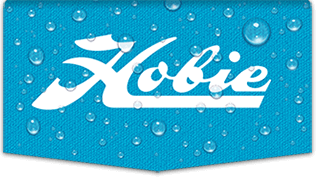Ok, for a good reference let's list the options. Feel free to correct and/or add to this list:
VHF Marine RadioPros:
Relativity low cost, about $150 for a decent model.
Water resistant, floatable units are available.
Multi-use device, not devoted only to rescue.
Compact handheld units are available with full 5-6 Watt power, attachable to PFD.
Fast rescue if you can contact local Coast Guard unit, Marine Police, or a nearby boat.
With DSC & Integrated GPS: Automated distress signal with GPS coordinates.
Cons:
Limited range, just several miles depending on sending and receiving antenna height, you must carefully determine if range is adequate for your purposes.
You must manually initiate the rescue call if not DSC equipped.
DSC & Integrated GPS models add about $100 to the cost.
You must ensure the battery is always charged.
Cell PhonePros:
Almost everyone already has one.
Multi-use device, not devoted only to rescue.
You can call virtually anyone for rescue.
Fast rescue if you can contact local Coast Guard unit, Marine Police, or other local rescue unit.
Cons:
Most cell phones are not water resistant, although you can purchase water resistant enclosures.
Spotty coverage, especially on the water. You can't rely on coverage at time of need.
You must initiate the rescue call, although there are apps for rescue purposes. This may not be easy while in an emergency situation, especially if in the water.
Not specifically designed for marine rescue. Not a serious rescue device.
Although most smartphones have an internal GPS, coordinates are not automatically sent.
You must ensure the battery is always charged.
SEND (SPOT & DeLorme)Pros:
Very good quality, reliable rescue device, second only to PLB's.
Internal GPS. Coordinates are transmitted automatically.
Excellent two way messaging service compatible with smartphones on the DeLorme units.
Multi-use device other than rescue only.
Lower initial purchase cost for some units (about $150 for SPOT).
Compact units available, attachable to PFD.
Water resistant units are available for marine use.
User replaceable batteries at much lower cost than PLBs.
Excellent coverage, second only to PLBs. Globalstar satellite constellation is arguably less effective than Iridium or COSPAS/SARSAT.
Versatile, can be used for land rescue as well as marine (hiking, cross country skiing, mountain climbing, etc.)
Fully automated rescue signal once initiated.
Cons:
Yearly subscription required (about $150). If you fail to pay the subscription you don't get rescued.
Lower, less reliable transmission power (400mw-1.6 Watts compared to 5 Watts for PLB).
You must ensure the batteries are always good.
Complex, high tech worldwide rescue notification system. It may take somewhat longer for a rescue than an immediate local call via a cell phone or VHF radio.
Does not emit a separate homing signal to help rescue units locate you like a PLB.
PLB (EPIRBs)Pros:
Ultimate in high tech emergency rescue devices.
Powerful, reliable 5 Watt power transmission directly to two satellites.
Internal GPS. Coordinates are transmitted automatically.
Low orbit satellites have separate Geo tracking in addition to transmitted GPS coordinates as a backup.
High orbit satellites have virtually full earth coverage at all times.
Compact units available, attachable to PFD.
Water resistant, floatable units are available for marine use.
No annual fees, service is free.
Sealed battery, reliable for five years.
Highly reliable, professional rescue device.
Works virtually anywhere in the world (with the appropriate unit).
Versatile, can be used for land rescue as well as marine (hiking, cross country skiing, mountain climbing, etc.).
Fully automated rescue signal once initiated.
Emits a separate homing signal to help rescue units locate you.
Cons:
Higher cost than SPOT, about $250 for the lowest cost model.
Battery needs replacement every five years from an authorized facility (about $100-$150).
Single use device, devoted only to emergency rescue.
Complex, high tech worldwide rescue notification system. It may take somewhat longer for a rescue than an immediate local call via a cell phone or VHF radio.
Low orbit satellites have coverage only every 90 minutes or so.
High orbit satellites have full time coverage but do not have Geo tracking capabilities.
More information here:
http://www.outdoorgearlab.com/Personal-Locator-Beacon-Reviews.
Make your own decision about which device or devices you wish to use. However I believe that it's clear that the most reliable system is a PLB if your life is on the line.





